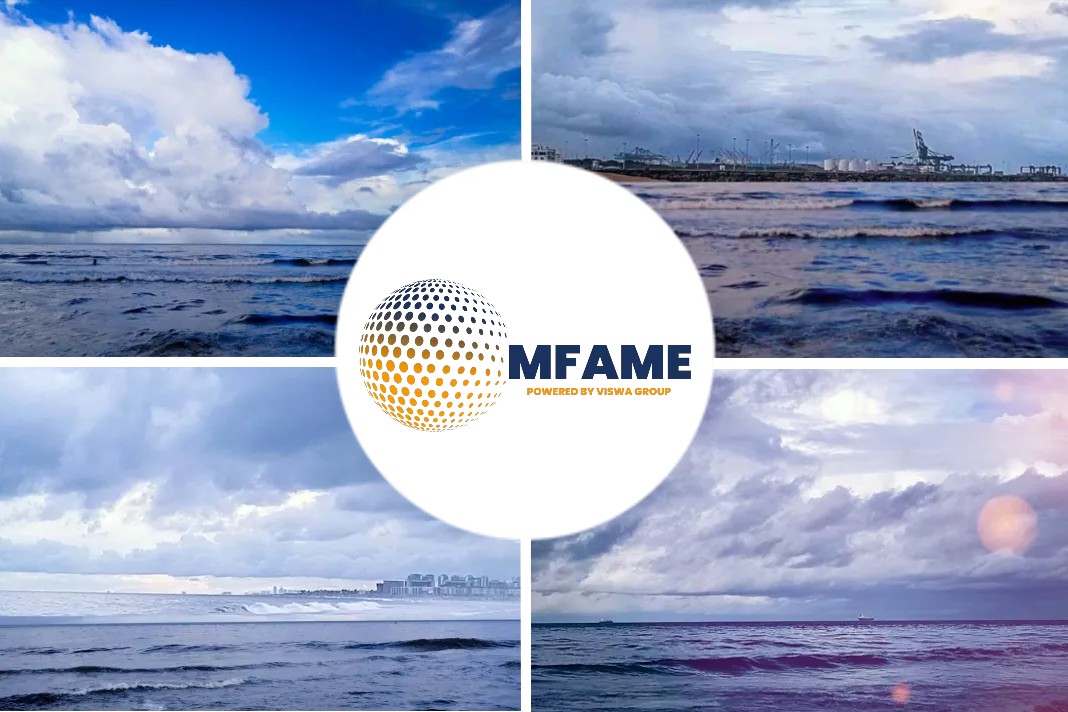In the “Protecting Blue Whales & Blue Skies” initiative of 2021, shipping firms were recognised for lowering their speeds. Participating shipping companies transited the Southern California and San Francisco Bay areas at 10 knots or less as reported by GCaptain.
Voluntary incentive program
The program’s Southern California region extends from Point Arguello (in Santa Barbara County) to waters near Dana Point (by the Ports of Los Angeles and Long Beach).
The voluntary incentive program ran from May 15, 2021, through November 15, 2021.
Shipping companies receive awards based on the percent of distance travelled by their vessels through the Vessel Speed Reduction (VSR) zones at 10 knots or less and with an average speed of 12 knots or less.
The 10-knot target complements the National Oceanic and Atmospheric Administration’s (NOAA) and U.S. Coast Guard’s requests for all vessels (300 gross tons or larger) to reduce speeds during the months of peak endangered blue, humpback, and fin whale abundance to protect these whales from ship strikes.
Observed and documented deaths totalled 51 endangered whales from 2007-2021, and likely represent only a small fraction of the total number of ship strikes taking place annually.
Outstanding Commitment
The timing of the program also coincides with the season when ground-level ozone (smog) concentrations are typically high.
These vessels account for nearly 200 tons of NOx per day emitted off the coast of California, which affects ozone levels onshore in many regions of the state.
Companies that performed at the Gold or Sapphire level were awarded a financial incentive.
For the fourth year in a row, Mediterranean Shipping Company (MSC) notably achieved the Sapphire tier in the large fleet category and demonstrated that planning enables ships to reduce speeds in VSR zones without disrupting operations.
In 2021, MSC travelled more than 23,000 nautical miles at 10 knots or less.
For their outstanding commitment, these two companies earned the Protecting Blue Whales and Blue Skies Whale Tail award.
Progrma highlights
The VSR incentive program has expanded in scope and environmental benefits each year, including 2021, which marked the seventh year. Highlights of the 2021 program include:
- Of the nearly 280,000 nautical miles of ocean transited by all the ships in the program, almost 180,000 nautical miles were at 10 knots or less, which is equivalent to traversing the circumference of the Earth more than eight times.
- Ships in the program transiting the southern California approximately 200-nautical-mile VSR zone travelled at 10 knots or less for 66% of the total miles travelled. This number has steadily increased season after season, (in 2017, approximately 21% of the miles were travelled at 10 knots or less). This shows the increased commitment by the participating companies over the years.
- In the 50-nautical-mile San Francisco Bay Area VSR zone, cooperation levels from the participating companies remained fairly consistent compared to previous years with a combined value of 60%.
- Shipping companies that participated in the 2021 program reduced their air pollutant emissions by 650 tons of NOx and 22,201 metric tons of regional GHGs. (For example, this equates to the GHG emissions from 4,784 passenger vehicles driven for one year or the amount of GHGs produced by charging more than 2.7 billion smartphones.) These numbers represent approximately a 25% reduction in NOx pollution from the ships that participated in the program, as compared to baseline conditions.
- The transits of vessels participating in the VSR program posed approximately 50% less strike mortality risk to whales than if those vessels did not slow in cooperation with the program.
- Ships in the Sapphire, Gold, and Blue Sky award tiers had sound levels that were 5 dB per transit lower when compared to baseline source levels. With a reduction in noise pollution whales can likely communicate easier.
- Incentives ranged from $5,000 to $50,000 per company in the Gold and Sapphire award tiers.
Educating customers
The cash incentive payout was graciously turned down by seven companies: MSC, COSCO Shipping Lines, Maersk, Ocean Network Express (ONE), Wallenius Wilhelmsen, Yang Ming, and Swire Shipping. These funds will be put back into the initiative.
A Brand Ambassador Initiative has also been developed as part of the programme for businesses interested in lessening the impact of their global supply chain. Shippers receive information about the shipping industry’s efforts to lower speed and the reduction in air pollutants, greenhouse gases, ship strikes, and ocean noise that has resulted. This data can then be used to assist firms to choose more environmentally friendly delivery methods and to educate customers about buying their items.
Participants of the program
The Channel Islands, Cordell Bank, and Greater Farallones National Marine Sanctuaries, The Volgenau Foundation, California Marine Sanctuary Foundation, National Marine Sanctuary Foundation, Greater Farallones Association, Environmental Defense Center, Point Bliss, and Santa Barbara County Air Pollution Control District have joined forces to create the “Protecting Blue Whales and Blue Skies” programme.
Did you subscribe to our daily Newsletter?
It’s Free! Click here to Subscribe
Source: GCaptain


















